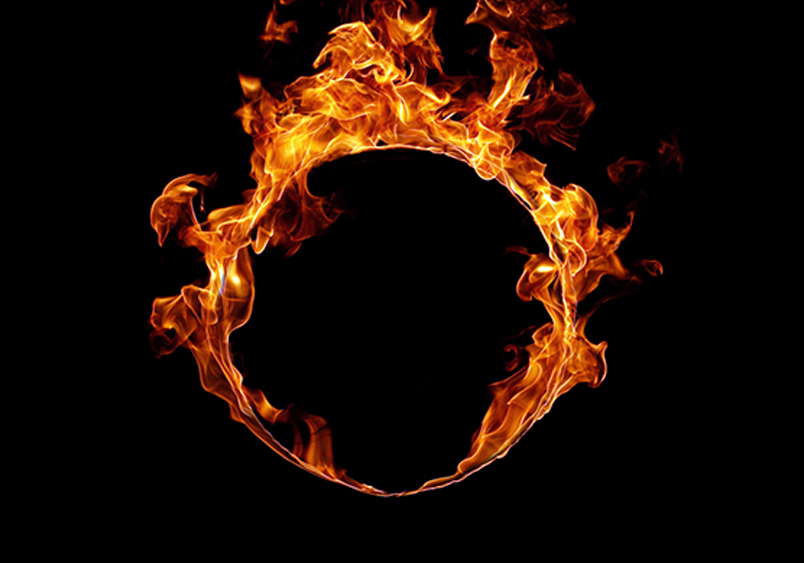Jenny Hall
Verses from The Dhammapada 354
The Buddha once said, ‘The gift of the Law is greater than all other gifts’.
 ©
© Shutterstock
‘The gift of the Law is greater than all other gifts’.
Traditionally, this verse is the Buddha’s answer given to the gods, who were arguing about which gift or pleasure in life is the best.
When I was a child, a few months before Christmas, a calendar appeared in a local shop window. It bore a coloured photograph of the Nutcracker ballet. I thought it the most beautiful picture I had ever seen. Every day, on the walk to and from school, I pressed my nose against the glass and gazed longingly. Much to my delight, it appeared in my Christmas stocking.
Like the picture on the calendar, we create images of life’s ‘gifts’ that are acceptable to ‘me’ and chase after them. However, in this verse, the Buddha is pointing out that everything that occurs is a gift. In this context, the Law is the Dharma. The Dharma is everything that comes to be and ceases to be in each moment.
When I was teaching in Sweden, at the end of the Christmas term, my pupils presented me with a large parcel wrapped in newspaper. I opened it to discover a large, smelly dried fish. Thinking it was a joke, I laughed. My pupils looked very upset and quickly assured me it was a great Swedish delicacy.
As I had judged the dried fish, we all tend to judge much of what happens in life as a misfortune. When we commit to the Zen training, we come to realise that these so called misfortunes are, in fact, valuable training opportunities. They are gifts to be treasured. They offer the possibility of meeting the emotional energy which we often prefer to repress or ignore. This energy is also a gift. When the hot flames of desire or hate are invited to burn me away, they change into the Buddha Nature, or ‘choiceless awareness’. In the following Jataka story, the hare’s self immolation is a symbol of this transmutation.
Many years ago, monks would sometimes walk through a beautiful forest on their way to and from the mountain monasteries. A white hare lived on the lush grass growing there. He had three friends, a monkey, a jackal and an otter. The hare was very wise and his friends looked up to him. He often reminded them that, if anyone asked for food, they should give generously.
One day, Indra, Lord of the gods, decided to test them. The four friends had been busy looking for food. The otter had caught seven fish. He had arranged them on the river bank. The jackal had caught a lizard and had found some curdled milk in a discarded jug. The monkey had picked mangoes from a tree. Indra disguised himself as a priest. He told the otter he was very hungry. He asked him for food, Remembering the hare’s instructions, the otter gave the priest all the fish. When the priest approached the jackal, the jackal gave him the lizard and milk. When the priest begged for food from the monkey the monkey handed him all the mangoes. The priest moved further into the forest. When he met the hare and asked for food, the hare knew that grass was unsuitable food for a human. He asked the priest to collect wood and to light a fire. When the fire was burning brightly, the hare said ‘The only food I have to give is myself’. With these words, he leapt into the flames. Indra was so moved by the hare’s self sacrifice that he extinguished the fire immediately. The hare hopped out. Indra revealed his true identity. He said the hare’s virtue would be eternally recognised. Indra reached into the sky and painted the hare’s likeness on the pale moon.
In Buddhism, giving is one of the Paramitas, translated as ‘Perfections’. It is not ‘I’ to be perfected but to be given away as the hare gave himself into the flames. With ‘me’ out of the way, the Buddha Nature flows in peace, compassion and understanding. This ‘presence’ is the most valuable gift of all. Presence is bestowed when we give ourselves wholeheartedly into our everyday encounters with people and objects.
Carl Jung, recounting his early work in psychiatry, said that most therapists at that time were only interested in describing symptoms, making a diagnosis and collating statistics. There was little active engagement with patients. Jung gradually began to pay very close attention to them. He spoke of an ‘attentive entering’ into the personality of each person. This produced a lasting therapeutic effect.
The open heart greets all with warmth and serenity. Then there is truly ‘Peace on Earth. Goodwill to all men’.




